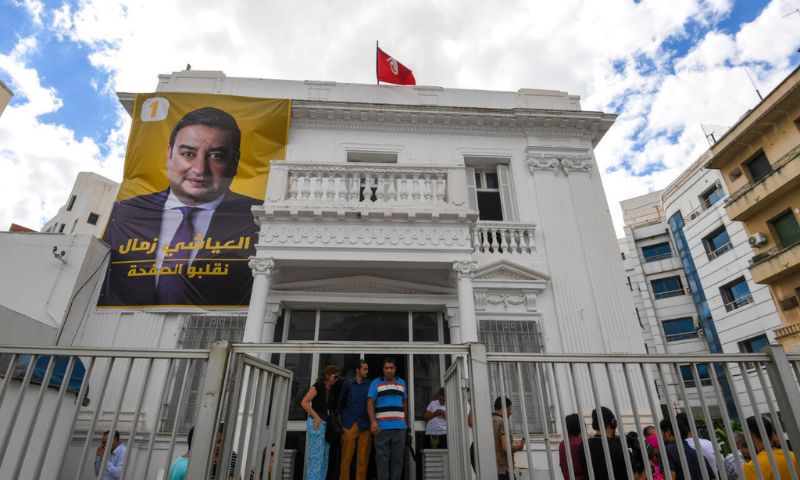TUNIS: Tunisian politician Ayachi Zammel, a candidate in the upcoming presidential election on October 6, has been sentenced to 12 years in prison.
“The court in Tunis sentenced Ayachi Zammel to 12 years in prison in four cases” related to voter endorsements, said his lawyer Abdessater Messoudi.
Despite the sentence, the 43-year-old Zammel remains a candidate for Sunday’s election. The frontrunner is incumbent President Kais Saied, who was elected in 2019 and subsequently dissolved parliament, creating a legislature with limited powers.
Zammel received a six-month jail sentence for “falsification of documents” from a Jendouba court last Wednesday, adding to a previous 20-month sentence imposed on September 18. He was arrested on September 2 for allegedly forging endorsements and was released shortly after, only to be rearrested on similar charges. His lawyer noted that Zammel faces a total of 37 separate prosecutions nationwide on related accusations.
Candidates must gather 10,000 signatures from registered voters, signatures from 10 parliamentarians, or endorsements from 40 elected local officials to qualify for the election. Before entering the race, Zammel was relatively unknown but now leads a small liberal party. He was one of only two candidates approved by Tunisia’s electoral authority, ISIE, to challenge Saied.
The candidate selection process has drawn criticism both domestically and internationally. ISIE rejected the bids of 14 hopefuls, ultimately presenting a final list of just three candidates: Saied, former parliamentarian Zouhair Maghzaoui, and Zammel. Human Rights Watch accused ISIE of bias in favor of Saied, noting that at least eight potential candidates faced prosecution or imprisonment prior to the election.
The exclusion of three other candidates—Imed Daimi, Mondher Zenaidi, and Abdellatif Mekki—despite court rulings in their favor has further fueled discontent. Experts argue these individuals could have posed a legitimate challenge to Saied.
Moreover, prospective candidates have reported facing bureaucratic hurdles in obtaining necessary paperwork to enter the election.
The European Union has condemned Zammel’s arrest and the exclusion of other candidates, citing these actions as evidence of a “continued limitation of the democratic space” in Tunisia.























